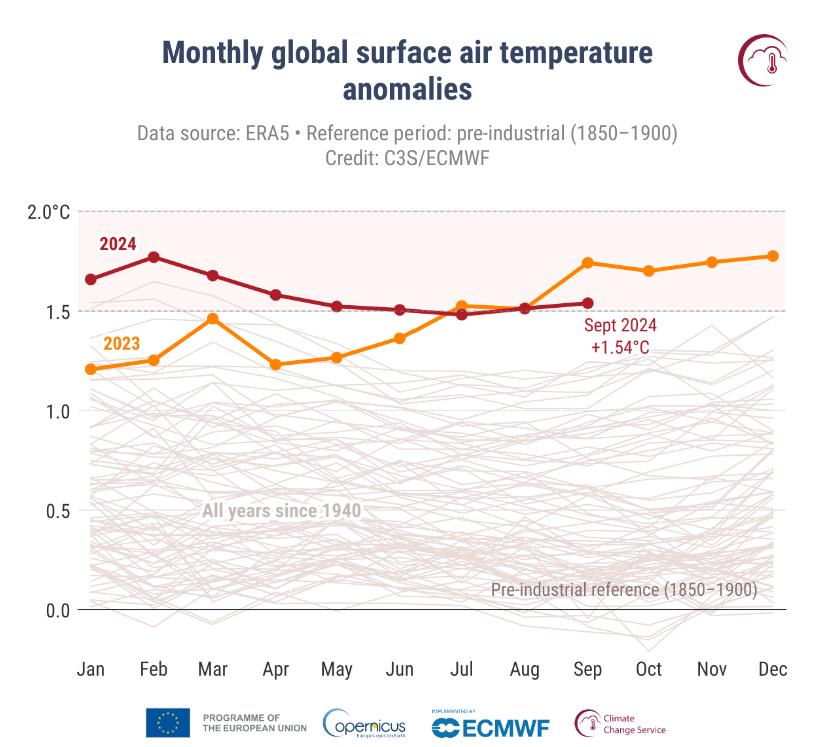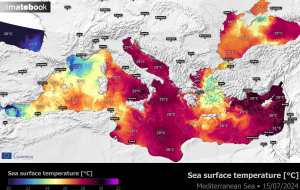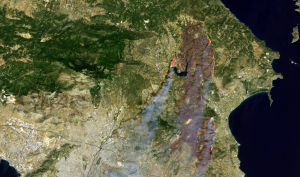September 2024 was the second-warmest September on record globally and for Europe, according to the Copernicus Climate Change Service (C3S).
The average temperature over Europe’s land was 1.74°C above the 1991-2020 average, with eastern and northeastern Europe experiencing the highest temperature anomalies.
Storm Boris brought heavy rainfall and severe weather to parts of Central and Eastern Europe, leading to flooding and damage.
In Greece, localized showers and thunderstorms were consistent with the trend of increased extreme precipitation linked to warmer atmospheric conditions.
This follows last year’s impact of Storm Daniel in Greece, which caused severe flooding, particularly in the agricultural region of Thessaly, where its effects are still strongly felt.

Global Trends
Globally, September 2024 saw a surface air temperature 1.54°C above pre-industrial levels. This marked the 14th month in a 15-month period where temperatures exceeded the 1.5°C threshold, highlighting a worrisome trend toward more frequent and intense heatwaves.
Sea surface temperatures remained exceptionally high, recording the second-highest value on record for September. While some areas, like the equatorial Pacific, showed cooler temperatures due to a developing La Niña, the Mediterranean waters near Greece were notably warmer, increasing the risk of severe weather and impacting marine ecosystems.
Commenting on the report, Samantha Burgess, Deputy Director of the Copernicus Climate Change Service, stated, “September 2024 was the second warmest both globally and for Europe. The extreme rainfall events of this month, which we are observing more frequently, have been worsened by a warmer atmosphere, leading to more intense rainfall in a short period. The sooner we reach NetZero emissions, the sooner we can mitigate this risk.”





